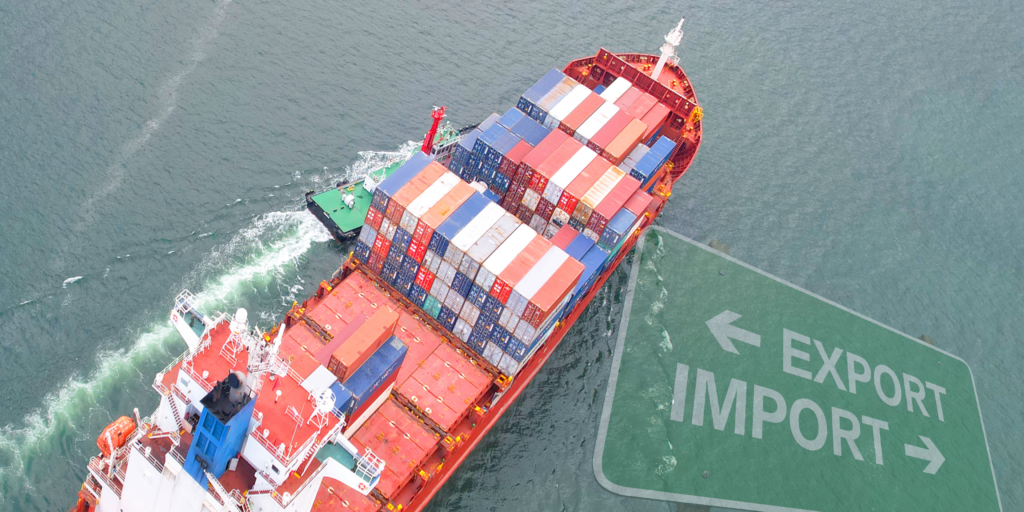
Author: Canaan Bridges Consulting Inc.

Countries usually have reasons for implementing trade measures in their economies. A country may
decide, for example, to enforce a measure that limits what forms of electronic appliances can be sold, developed, marketed, and imported into their economy based on essential security or environmental reasons.
When a country implements specific rules governing the labelling, packaging and sale of alcoholic beverages and cigarettes within its borders, its justification for doing so is usually public health protection. This article explains the relationship between the World Trade Organization’s Technical Barriers to Trade Agreement (TBT Agreement) and national trade measures. It provides an overview of trade concerns that exporting countries have raised about technical regulations and standards – as barriers to trade in foreign markets. One of the objectives of the multilateral trade system is to promote non-discriminatory trade practices between countries. In implementing trade policies, the World Trade Organization (WTO) member countries are expected to use the least restrictive trade measures to achieve national objectives. The WTO Agreement on Technical Barriers to Trade (TBT Agreement) addresses how and to what extent countries can implement technical regulations, standards, and conformity assessments as a part of their trade policies without running afoul of WTO trade rules.
The Agreement on Technical Barriers to Trade and Domestic Measures: Relationship
Most impediments to trade integration are related to non-tariff concerns. General duties on imports are not the most crucial concern of states that trade with each other. Non-tariff barriers to trade represent all different types of measures, rules or policies that are implemented by a country which affect the ability of another country to trade with it (this includes subsidies, rules of origin, intellectual property, and foreign investment measures). The TBT Agreement recognizes, therefore, allowing governments latitude to implement measures to protect human, animal or plant health and life, the environment, and essential security and prohibit deceptive practices.
Using these measures may impede or re-orient the terms of trade between some member countries. This does not mean that they are impermissible. However, as the TBT specifies, if the measures are arbitrary or unjustifiably discriminatory, they should not be used by WTO countries. International standards are non-binding rules developed and adopted by international standard-setting bodies to achieve particular outcomes in specified processes, actions or projects. There is a rebuttable presumption that when a WTO country implements an international standard or bases its measure on the relevant parts of an international standard, the imposed measure will not be an obstacle to trade. The TBT Agreement identifies one international standard-setting body (the International Organization of Standards – ISO) within its provisions. However, WTO panels and Appellate Body (AB) decisions acknowledge that other international bodies involved in standard-setting activities can be standard-setting bodies that fall within the purview of the TBT Agreement (eg. the Food and Agriculture Organization, Codex Alimentarius standards).
The Role of Technical Regulation and Standards in the TBT’s Narrative
Technical regulations and standards can affect a producer’s access to foreign markets. When a technical regulation is implemented in a domestic market, importing producers (or cross-border service providers) must comply with the measure before the products can enter the host country. For instance, under the Tobacco Plain Packaging WTO dispute (TPP dispute), Australia’s tobacco advertising and sale measure required all cigarettes and tobacco products to be marketed and sold in plain packages, without logos or photos, and in specific sizes. More specifications were also required.
These measures were technical regulations Australia implemented to address public health concerns. The matter was disputed at the WTO level, led by Cuba, Indonesia and third-party members to the proceeding on the basis that these measures prevented their producers from gaining access to Australia’s market and were among other things, contrary to the TBT. On deliberation, the WTO Panel and its Appellate Body decided that these technical regulations were justifiable to protect human health and were the least restrictive means of addressing Australia’s objectives. In a WTO dispute initiated by Indonesia against the United States enactment of the prohibition against clove cigarettes in its Food, Drug, and Cosmetic Act, the Appellate Body reasoned that the measure was discriminatory, as it allowed a similar product produced in its domestic market (menthol cigarettes) to be sold.
One of the disputes currently before the WTO Panel is a complaint brought by Malaysia about the European Union’s renewable energy target. The target, Malaysia contends, is discriminatory to its palm oil producers and producers of palm oil-based products because it will substantially limit the amount of Malaysian biofuels sold in the EU. This leads to whether and to what extent the TBT Agreement considers the particular position of developing countries, vis a viz developed countries, in foreign market trades as part of their developmental objectives. The Agreement requires member countries to provide differential and more favourable treatment to emerging economies based on the developing state’s financial, trade needs and developmental objectives. In practice, this specification means that developed countries are likely to consider how to comply with these provisions and include procedural safeguards that suggest that such steps have been taken.
One of the main differences between a technical regulation and a standard (by their definition in the TBT Agreement) is that non-compliance with the latter will not prevent the exporter from entering the host country’s market. However, the fact that the exporter can sell her products in the host country’s market without the standard may be detrimental if standard certification would have leveraged the product’s marketability.
Challenges
Countries can raise Specific Trade Concerns (STCs) about measures that are barriers to trade with the WTO. The WTO indicates that each new trade concern is worth US $29 billion to the complaining country in the first year that the concern was raised. Canaan Bridges’ analyses of STC country trends indicate that between 2018 and 2023, the European Union, India, China, and the United States accounted for most of the STCs raised per country.
Ongoing Implications of the TBT
The influence of WTO TBT rules is far-reaching as it can impact what products can be exported to a country, the volume of products exported (in case of the economic capacity to adopt technical regulations or standards) and the level of trade integration between regions or across countries. At the same time, these measures can be integral to the sustainability of the importing country’s economy, including its essential security interests and the well-being and lives of its people. TBT rules are now commonplace chapters in several free trade agreements. In the context of TBT rules, these agreements aim to harmonize between contracting parties, approaches to the use of international standards, technical regulations and standards, and precautions to be adopted before their implementation.

TBTs cover diverse areas, and therefore have cross-sector implications. Finding the most appropriate (therefore less trade-restrictive) balance between the need to protect domestic interests while at the same time complying with international trade rules is not an easy feat.